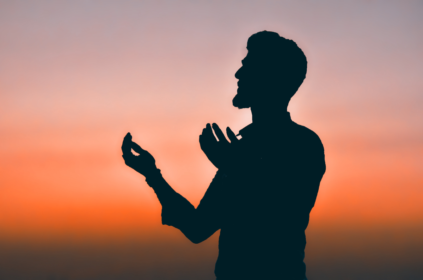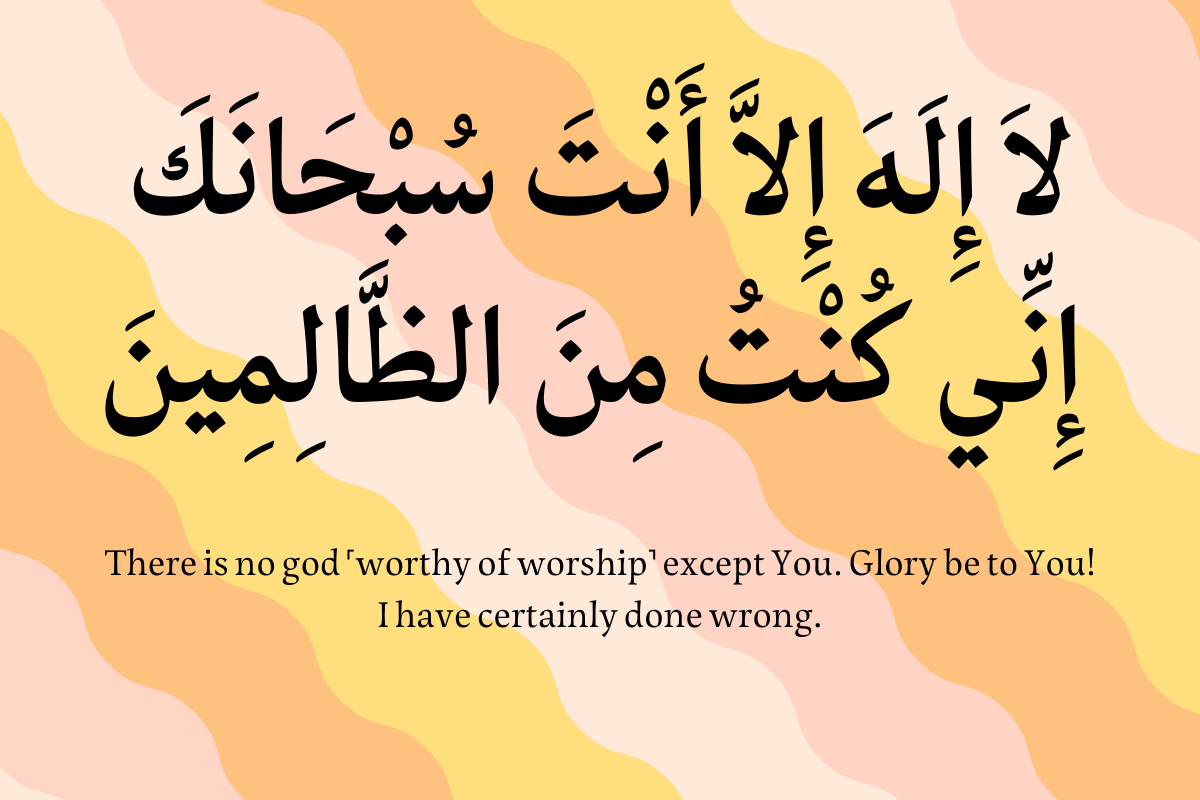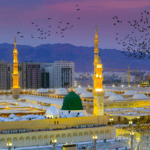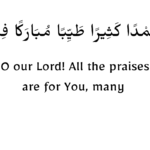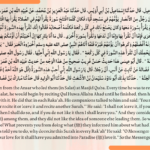- The Significance of Sujud in Islamic Worship
- The Physical and Spiritual Benefits of Sujud
- The Concept of Closeness to Allah through Sujud
- The Role of Humility in Sujud
- Prostration as a Form of Submission to Allah
- Supplication and Dua During Sujud
- Sujud and Its Connection to Islamic Spirituality
- Conclusion: Embracing the Power of Sujud in Our Daily Lives
بِسْمِ ٱللَّٰهِ ٱلرَّحْمَٰنِ ٱلرَّحِيمِ
In the Islamic faith, sujud holds a significant place in the realm of worship. Sujud, also known as prostration, is a fundamental act of devotion that Muslims perform during their prayers. The best time to ask Allah for your wants and needs is to make Dua during sujud.
It involves placing the forehead, nose, hands, knees, and toes on the ground as a symbol of submission and humility before Allah.
This article aims to shed light on the spiritual and physical benefits of sujud, the concept of closeness to Allah through this act of worship, and the role of humility in deepening our connection with the Divine.
The Significance of Sujud in Islamic Worship
Sujud is not merely a physical movement; it carries immense spiritual significance. It is a moment of surrender, a gesture of acknowledging the greatness and sovereignty of Allah.
When a Muslim prostrates, they are expressing their complete submission to the will of their Creator.
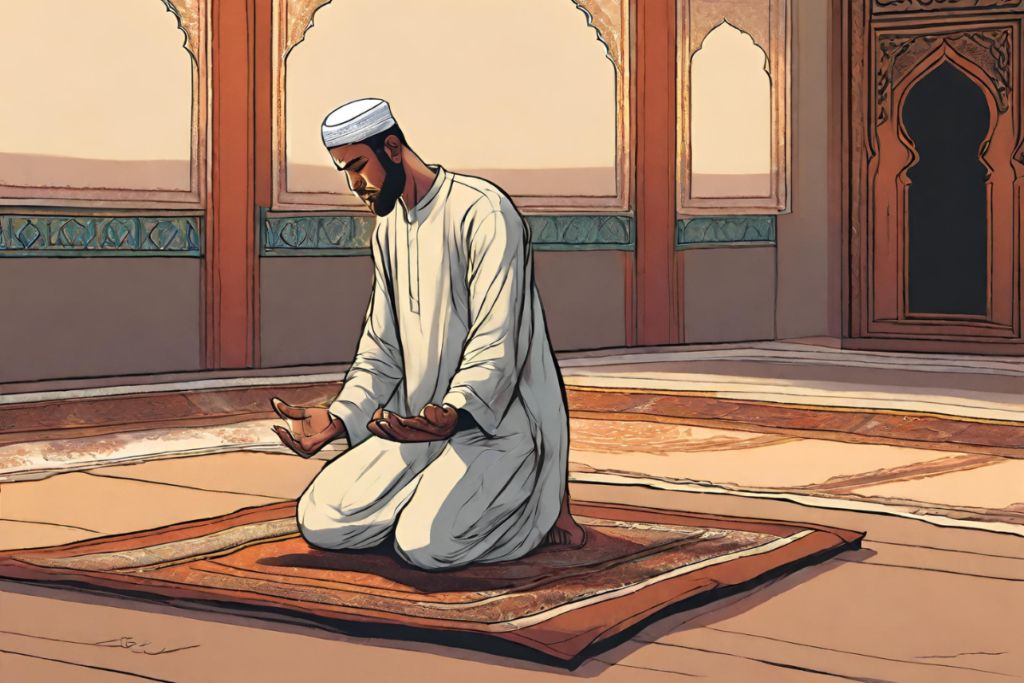
This act of submission is a cornerstone of Islamic worship, as it signifies the believer’s recognition of their dependence on Allah and their willingness to abide by His commandments.
Additionally, sujud serves as a powerful reminder of the transient nature of this world. By lowering ourselves before Allah, we are reminded that our earthly achievements and possessions hold little value in the grand scheme of things.
Sujud acts as a humbling force that helps believers detach from worldly distractions and focus on their ultimate purpose: to seek closeness to Allah.
The Physical and Spiritual Benefits of Sujud
Apart from its spiritual significance, sujud also provides numerous physical and health benefits.
When a person prostrates, they improve blood circulation to the brain, resulting in increased mental alertness and enhanced memory.
The position of sujud also stretches and strengthens various muscles, particularly in the back, buttocks, and legs, promoting flexibility and preventing joint problems.
From a spiritual perspective, sujud becomes a means of purifying the heart and seeking inner peace.
Believers believe that the act of prostration creates a direct connection between the worshiper and Allah, facilitating the flow of divine blessings and guidance.
It is during sujud that Muslims feel the closest to their Creator, experiencing a profound sense of tranquility and spiritual elevation.
The Concept of Closeness to Allah through Sujud
Closeness to Allah is the ultimate goal of every believer, and sujud plays a pivotal role in achieving this connection.
When a person prostrates, they are in the closest physical proximity to the ground, symbolizing their humble position in the presence of Allah. This physical proximity reflects the spiritual closeness that believers strive to attain.
During sujud, Muslims engage in intimate conversation with Allah through supplication and dua.
In this moment of prostration, they pour their hearts out, seeking forgiveness, guidance, and blessings. Sujud becomes a gateway to connect with Allah on a profound level, allowing believers to experience His mercy and love.
The Role of Humility in Sujud
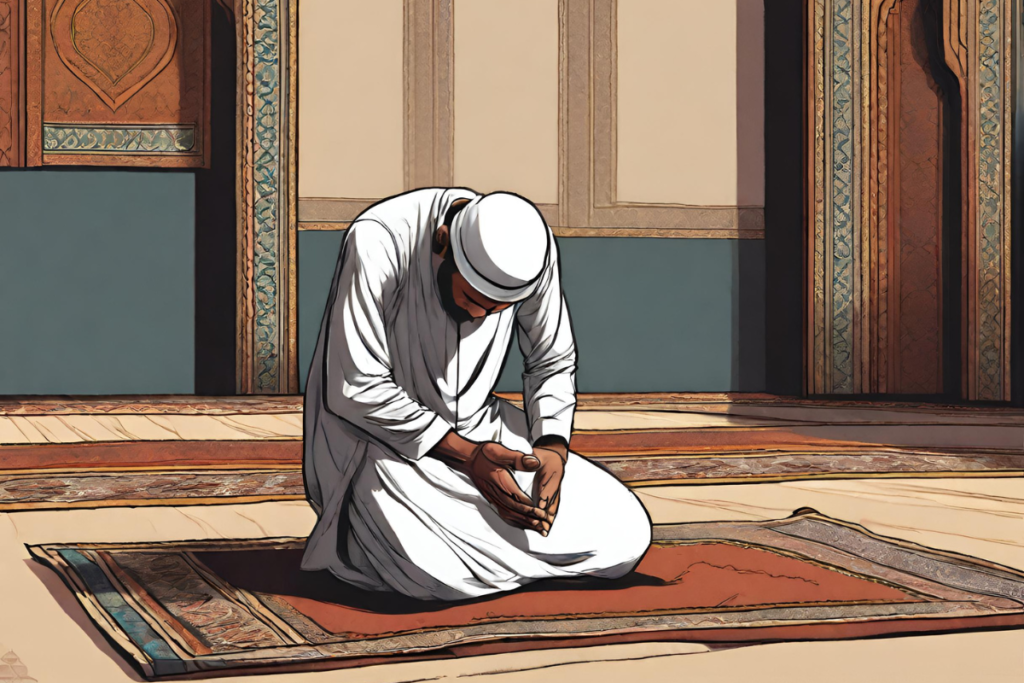
Humility lies at the core of sujud. By prostrating before Allah, Muslims acknowledge their insignificance in comparison to the vastness and magnificence of the Divine.
It is through humility that believers can truly submit themselves to the will of Allah and detach from their ego-driven desires.
In sujud, Muslims are reminded of their vulnerability and dependence on Allah’s mercy and guidance.
This humility cultivates a sense of gratitude, as believers recognize that every blessing they possess is a result of Allah’s grace.
By practicing humility in sujud, Muslims strive to emulate the example set by the Prophet Muhammad (ﷺ) and deepen their connection with Allah.
Prostration as a Form of Submission to Allah
Sujud is the epitome of submission to Allah. When a person prostrates, every part of their body is lowered, symbolizing complete surrender to the Divine will.
This physical act of submission reflects the inner state of the believer, as they strive to align their desires and actions with the commandments of Allah.
Through sujud, Muslims affirm their belief in the oneness of Allah and their commitment to following His guidance.
It is a reminder that true freedom lies in surrendering to Allah’s wisdom and accepting His decree.
In a world filled with distractions and temptations, sujud serves as a compass, guiding believers towards a life of obedience, righteousness, and spiritual fulfillment.
Supplication and Dua During Sujud
One of the most profound moments in sujud is the opportunity to make Dua as said in the Hadith below:
وَحَدَّثَنَا هَارُونُ بْنُ مَعْرُوفٍ، وَعَمْرُو بْنُ سَوَّادٍ، قَالاَ حَدَّثَنَا عَبْدُ اللَّهِ بْنُ وَهْبٍ، عَنْ عَمْرِو بْنِ الْحَارِثِ، عَنْ عُمَارَةَ بْنِ غَزِيَّةَ، عَنْ سُمَىٍّ، مَوْلَى أَبِي بَكْرٍ أَنَّهُ سَمِعَ أَبَا صَالِحٍ، ذَكْوَانَ يُحَدِّثُ عَنْ أَبِي هُرَيْرَةَ، أَنَّ رَسُولَ اللَّهِ صلى الله عليه وسلم قَالَ “ أَقْرَبُ مَا يَكُونُ الْعَبْدُ مِنْ رَبِّهِ وَهُوَ سَاجِدٌ فَأَكْثِرُوا الدُّعَاءَ ” .
The Messenger of Allah (ﷺ) said: The nearest a servant comes to his Lord is when he is prostrating himself, so make supplication (in this state).
Source: Sahih Muslim 482
Narrated by: Abu Hurairah (RA)
Muslims are encouraged to pour their hearts out to Allah during this act of prostration, seeking His forgiveness, guidance, and blessings.
The position of sujud is considered a time when prayers are readily accepted by Allah, making it a precious opportunity for believers to seek solace and spiritual upliftment.
When a person prostrates, they are in a state of utmost vulnerability and humility. This state of vulnerability allows Muslims to open themselves up to Allah, seeking His mercy and intervention in their lives.
The act of making dua in sujud is a testament to the believer’s trust in Allah’s infinite wisdom and compassion, knowing that He alone has the power to grant their supplications.
Sujud and Its Connection to Islamic Spirituality
Sujud is not limited to the physical act of prostration during prayer; it extends beyond the prayer mat and into every aspect of a believer’s life.
Islamic spirituality revolves around the concept of surrendering to Allah, seeking His pleasure, and aligning one’s actions with His commandments.
Sujud serves as a constant reminder of this spiritual journey, encouraging Muslims to maintain a state of humility, gratitude, and closeness to Allah in all their endeavors.
By incorporating the spirit of sujud into their lives, Muslims can develop a profound sense of mindfulness, purpose, and connection with Allah.
It reminds believers to be conscious of their intentions, actions, and their responsibility towards their fellow human beings.
Sujud becomes a transformative force that shapes every aspect of a believer’s character, guiding them towards embodying the principles of compassion, justice, and mercy.
Conclusion: Embracing the Power of Sujud in Our Daily Lives
Sujud holds immense significance in the practice of Islam. It is a physical and spiritual act of worship that cultivates closeness to Allah, humility, and submission.
By embracing the power of sujud in our daily lives, we can experience profound spiritual elevation, inner peace, and a deeper connection with the Divine.
Let us strive to incorporate sujud not only in our prayers but also in our interactions, decisions, and aspirations.
May we find solace and guidance through the act of prostration, and may it strengthen our relationship with Allah, enabling us to live a life of purpose, righteousness, and spiritual fulfillment.

